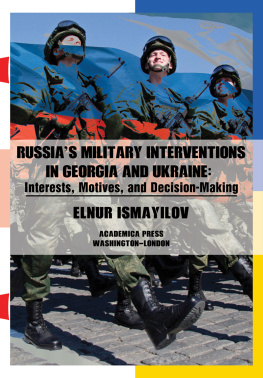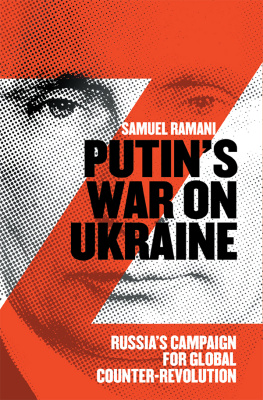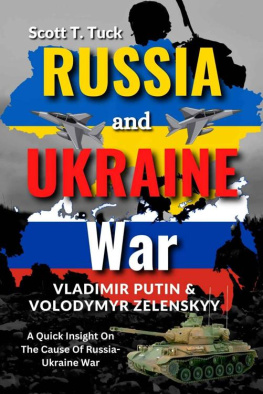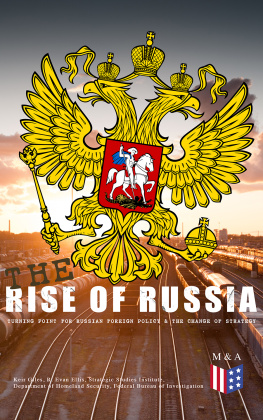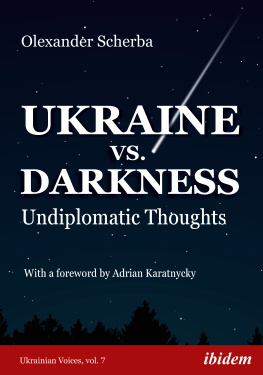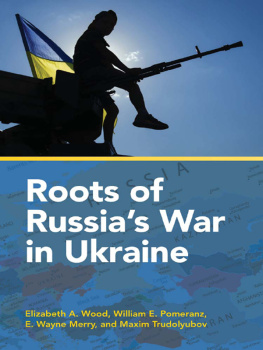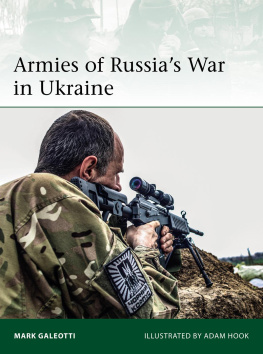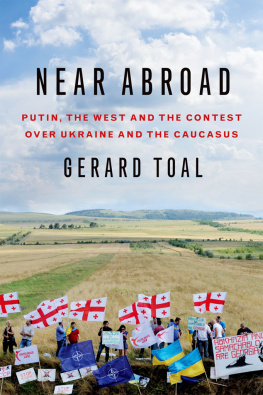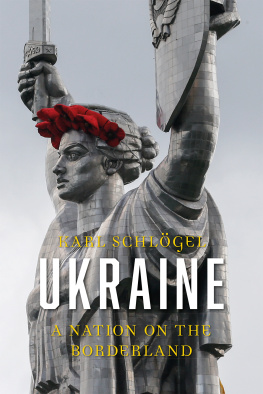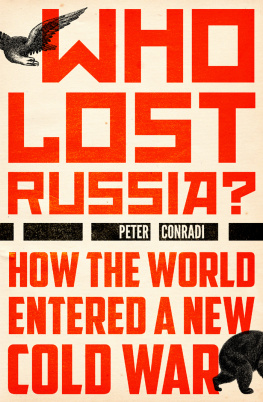Russias Military Interventions in Georgia and Ukraine: Interests, Motives, and Decision-Making
Elnur Ismayilov
Russias Military Interventions in Georgia and Ukraine: Interests, Motives, and Decision-Making
Elnur Ismayilov
Academica Press
Washington~London
Library of Congress Cataloging-in-Publication Data
Names: Ismayilov, Elnur (author)
Title: Russias military interventions in Georgia and Ukraine : interests, motives, and decision-making | Elnur Ismayilov
Description: Washington : Academica Press, 2021. | Includes references.
Identifiers: LCCN 2020952972 | ISBN 9781680539103 (hardcover) | ISBN 9781680538052 (e-book)
Copyright 2021 Elnur Ismayilov
Contents
Chapter I
Introduction
Chapter II
Research Design, Theoretical Overview and Methodological Assumptions
Chapter III
Russias Foreign Policy Strategies
Chapter IV
Analysis of Russias Military Intervention in Georgia
Chapter V
Analysis of Russias Military Intervention in Ukraine
Chapter VI
Conclusion
List of Maps
List of Abbreviations
CIA Central Intelligence Agency
CIS Commonwealth of Independent States
CPRF Communist Party of the Russian Federation
CST Collective Security Treaty
CSTO Collective Security Treaty Organization
EP European Parliament
EU European Union
EurAsEc Eurasian Economic Community
FPC Foreign Policy Concept
FPD Foreign Policy Doctrine
FSU Former Soviet Union
GA General Assembly
GUAM Georgia, Ukraine, Azerbaijan, and Moldova
IR International Relations
JCC Joint Control Commission
MFA Ministry of Foreign Affairs
NATO North Atlantic Treaty Organization
NMD National Military Doctrine
NSC National Security Concept
OSCE Organization for Security and Cooperation in Europe
PfP Partnership for Peace
RF Russian Federation
RFP Russian Foreign Policy
R2P Responsibility to Protect
SC South Caucasus
SU Soviet Union
UN United Nations
Acknowledgements
There are many people who contributed to the completion of this book with the support and encouragement. Among them, first of all, I would like to express my heartfelt gratitude to my academic supervisor Prof. Dr. Sven Gareis for his guidance, insight and generous support and for his patient throughout the dissertation upon which this book is based. Without his guidance and support it would not be possible to finish it. Prof. Dr. Gareis helped me develop theoretical and analytical framework for this research. I would like also to thank my second supervisor Prof. Dr. Thomas Dietz for his priceless support in finalization of this work.
I am also extremely indebted to the Graduate School of Politics (GraSP) for providing necessary infrastructure and resources to accomplish my research. I was lucky to be a part of the GraSP, in which I have been surrounded by wonderful colleagues. I express my sincere appreciation to the all GraSP colleagues who supported me morally during these years. I would like to acknowledge especially Administrative Director of the GraSP Dr. Matthias Freise.
I take this opportunity to sincerely acknowledge the German Academic Exchange Service (DAAD) for providing financial support in the form of Research Fellowship, which promoted me to perform my work comfortably during the past research years.
My accomplishments could not have been achieved without the assistance of my interviewees. Among my interviewees I should specifically mention names of former Georgian President Eduard Shevardnadze, former Foreign Policy State Advisor for Azerbaijan President between 1990-1999 years Vafa Guluzade; former US Ambassador to Azerbaijan Richard Kauzlarich; former Foreign Policy State Advisor for Azerbaijan President Rasim Musabayov, and Thomas de Waal who is one of the famous specialists in the region. I also met diplomats and politicians from Russia, Ukraine, and Georgia who shared their experiences. Last but not least, my parents, my wife, and my children provided me with the necessary time, space, and love. This long road could not have been contemplated without their love and encouragement.
Chapter I
Introduction
The new Russia is not the Soviet Union nor is she the old Russian Empire. Russias new borders, possibilities, culture, civilization, and inner development have all contributed to making Russia a new state, one that has not previously existed on the global political or geographic map.
(Sergey V. Kortunov, Chief of Staff, Council of Russian Defense)
1.1 Background
The international system under which we live is between two eras: the post-Cold War era and the new Cold War era. The world is in a transitional stage, from international cooperation and hope for a new era of peace to the menace of new global military confrontations. The end of the Cold War, which was the turning point in international politics that led to the creation of the new world order, was characterized mainly as a blossoming of relations between global powers. The new world order was described as an order in which no nation must surrender one iota of its own sovereignty; an order characterized by the rule of law rather than the resort to force; the cooperative settlement of disputes, rather than anarchy and bloodshed, and an unstinting belief in human rights.1 Optimistic expectations for the new world order changed with the political, military, economic, and ideological developments in the last decade of the 20th century and in the beginning of the 21st century, especially with the expansion of the militarist, interventionist policies of global and regional powers. Hope for the settlement of conflicts that remained from the Cold War years through dialogue and other non-military tools in the new international system was replaced with the rise of armed conflicts, regional wars, and crises.
In the last two decades, the disintegration of several states and armed violence within them has burdened the security of the whole world. As a result of these developments, not only were new, previously unrecognized states internationally recognized, but the amount of unresolved frozen conflicts increased. The present period is reminiscent of the Cold War period; but there are important differences between these two periods. The Cold War competition was not just a competition between the Great Powers over territory and influence; it focused mainly on ideological competition between communism and liberal democracy. If the Cold War was an anti-system competition against a new system; then the new Cold War is closer to the nation states and imperial rivalries of previous centuries, except with powerful and fast-acting weapons.
It is unquestionable that one of the most controversial issues in the contemporary debate among politicians, lawyers, and academicians is the concept of intervention.2 Intervening in another country without the United Nations Security Councils (UNSC) permission is prohibited under the UN Charter. Only the UN, which is accepted as the worlds legitimizing source, has the right to authorize the use of force. However, what we are witnessing since the end of the bipolar world order is that there are many cases in which global and regional powers unilateral use of force against a sovereign state was realized without UN authorization. Therefore, the concept of non-interference in international affairs has already lost its significance, while interference is widely acknowledged in the modern-day international system.3

